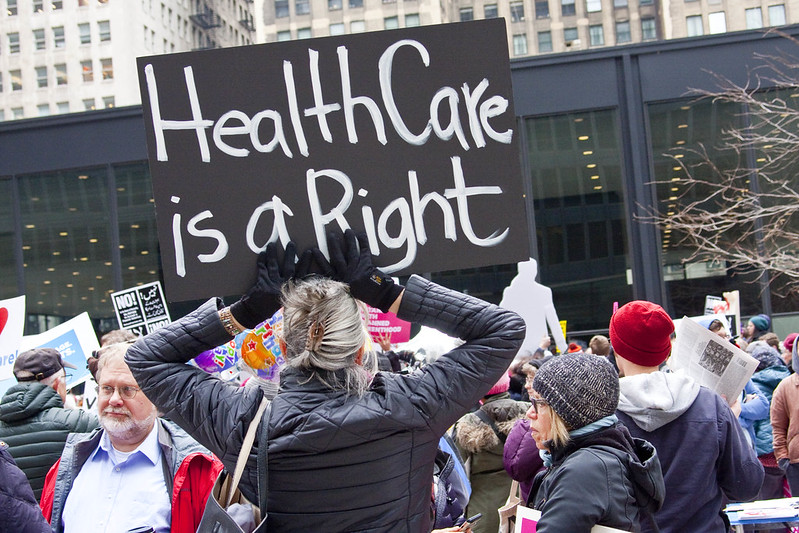Preparando a los estudiantes de medicina de EE.UU. para responder al cambio climático / Preparing U.S. Medical Students to Respond to Climate Change
Resumen
La devastadora temporada de huracanes de este año ha puesto de relieve los efectos económicos y sanitarios de un clima mundial cambiante. Los variados impactos del cambio climático en la salud ya no pueden ser ignorados por nadie que practique la medicina, ya sea de atención primaria o especializada. Los médicos ya están a la vanguardia de la respuesta al cambio climático, abogando en nombre de sus pacientes. A través de organizaciones profesionales, grupos de membresía y acciones individuales, los médicos están trabajando para mitigar el impacto del cambio climático y también abogando por la reducción de las emisiones de carbono. En el futuro, los médicos se ocuparán de los impactos del cambio climático en la salud, desde el empeoramiento de la calidad del aire hasta las frecuentes olas de calor. Las facultades de medicina ofrecen un espacio estructurado para que los futuros médicos aprendan sobre la interacción entre la salud humana y el cambio climático. Mientras que los esfuerzos internacionales para preparar el futuro personal sanitario han avanzado rápidamente, las facultades de medicina de los Estados Unidos se han quedado atrás. Las facultades de medicina deben incorporar conceptos de salud ambiental en los esfuerzos del plan de estudios general para preparar a sus graduados a enfrentar los desafíos de un clima cambiante. Abstract The devastating hurricane season this year has brought the economic and health impacts of a changing global climate into stark relief. The varied health impacts of climate change can no longer be ignored by anyone who practices medicine – whether primary care or specialist. Physicians are already at the forefront of the response to climate change, advocating on behalf of their patients. Through professional organizations, membership groups, and individual actions, doctors are working to mitigate the impact of climate change as well as advocating for reductions in carbon emissions. In the future, physicians will be managing the health impacts of climate change, from worsening air quality to frequent heat waves. Medical schools provide a structured space for future physicians to learn about the interaction between human health and climate change. While international efforts to prepare the future health workforce have proceeded at a rapid clip, US medical schools have lagged behind. Medical schools must incorporate environmental health concepts into general curriculum efforts to prepare their graduates to meet the challenges of a changing climate.Citas
Watts N, Adger WN, Agnolucci P, et al. 2015 Lancet Commission on Health and Climate Change. Health and climate change: policy responses to protect public health. Lancet. 2015;386(10006):1861-1914.
Crimmins A, Balbus J, Gamble JL, Beard CB, et al. U.S. Global Change Research Program. The Impacts of Climate Change on Human Health in the United States: A Scientific Assessment. https://health2016.globalchange.gov/. Published 2016. Accessed Oct 3, 2017.
Munro A. Medical Students call on the British Medical Association to sell fossil fuel investments. MedAct.org. https://www.medact.org/2017/news/divestment-medical-students-call-british-medical-association-sell-fossil-fuel-investments/. Published April 26, 2017. Accessed on Sept 27, 2017.
Bell EJ. Climate change: what competencies and which medical education and training approaches? BMC Medical Education. 2010;10(31).
Maxwell J & Blashki G. Teaching about climate change in medical education: an opportunity. Journal of Public Health Research. 2016;5(1):673.
Regan W, Owen S, Bakewell H, Jackson E, de Sousa Peixoto R, Griffiths F. Medical Students, Climate Change, and Health. E:CO. 2012;14(1):1-14.
Tomes C. Teaching sustainable healthcare to tomorrow’s doctors: a mixed method analysis of medical school innovations in England. Association for the Study of Medical Education. https://www.asme.org.uk/images/ghe2011/Tomes%20posters.pdf. Published 2011. Accessed Oct 3, 2017.
Barna S. Collaborative curriculum development: preparing medical students to lead a sustainable healthcare system! The Higher Education Academy. https://www.heacademy.ac.uk/system/files/tdg_stefi_barna.pdf. Accessed Oct 3. 2017.
Hamel Green EI, Blashki G, Berry HL, Harley D, Horton G, and Hall G. Preparing Australian Medical Students for Climate Change. Australian Family Physician. 2009;38(9):726-729.
Faulkner K (Sept 2016). Climate change: the challenge to medicine in the 21st century. Australian Medical Student Journal. http://www.amsj.org/archives/5447. Published Sept 2016. Accessed Aug 28, 2017.
Hellsing J, Carey M. Are Australia’s future doctors being educated about climate change and health? Doctors for the Environment Australia. https://www.dea.org.au/images/general/Teaching_of_climate_change_and_health_poster_v1_11.pdf. Accessed Oct 3, 2017.
Saraswat M, Lau K, Mazze N, Shen C, Wang A, Gibson R, Langer B, Steadman P. Climate change and global health: Training future physicians to act and mitigate. Canadian Federation of Medical Students. https://www.cfms.org/files/position-papers/2016_climate%20change%20and%20gh%20training.pdf. Published 2016. Accessed Aug 28, 2017.
Friedrich MJ. Medical Community Gathers Steam to Tackle Climate’s Health Effects. Journal of the American Medical Association. 2017;317(15):1511-1513. doi:10.1001/jama.2017.0969
The White House. Fact Sheet: Health Educators Climate Commitment. from https://obamawhitehouse.archives.gov/the-press-office/2015/12/04/fact-sheet-health-educators-climate-commitment. Published Dec 4, 2015. Accessed Sept 27 2017.
Potempa K. Start Teaching Medical Professionals to Get Ready for Climate Change. The Wall Street Journal. https://blogs.wsj.com/experts/2015/09/27/start-teaching-medical-professionals-to-get-ready-for-climate-change/. Published Sept 27, 2015. Accessed Sept 27, 2017.
Climate Change, Film, and Human Life. Inside Blue Book Electives. https://med.uth.edu/mcgovern/curriculum/bluebook-electives/climate-change/. Accessed Sept 27, 2017.
Fleischer D (2017 Feb). UCSF Medical School Inquiry Course Explores Link Between Climate Change and Health. University of California San Francisco. http://sustainability.ucsf.edu/3.659. Published Feb 2017. Accessed Oct 3, 2017.
Snyder, B. University of Minnesota Courses. Health Professionals for a Healthy Climate. Retrieved from http://www.hpforhc.org/courses.html. Accessed October 3, 2017.
Simpson S Jr, Blizzard L, Otahal P, Van der Mei I, Taylor B. Latitude is significantly associated with the prevalence of multiple sclerosis: a meta-analysis. J Neurol Neurosurg Psychiatry. 2011;82(10):1132-41. doi: 10.1136/jnnp.2011.240432. Epub 2011 Apr 8.
Global Consortium on Climate and Health Education. Columbia University Mailman School of Public Health. https://www.mailman.columbia.edu/research/global-consortium-climate-and-health-education. Accessed Oct 3, 2017.


